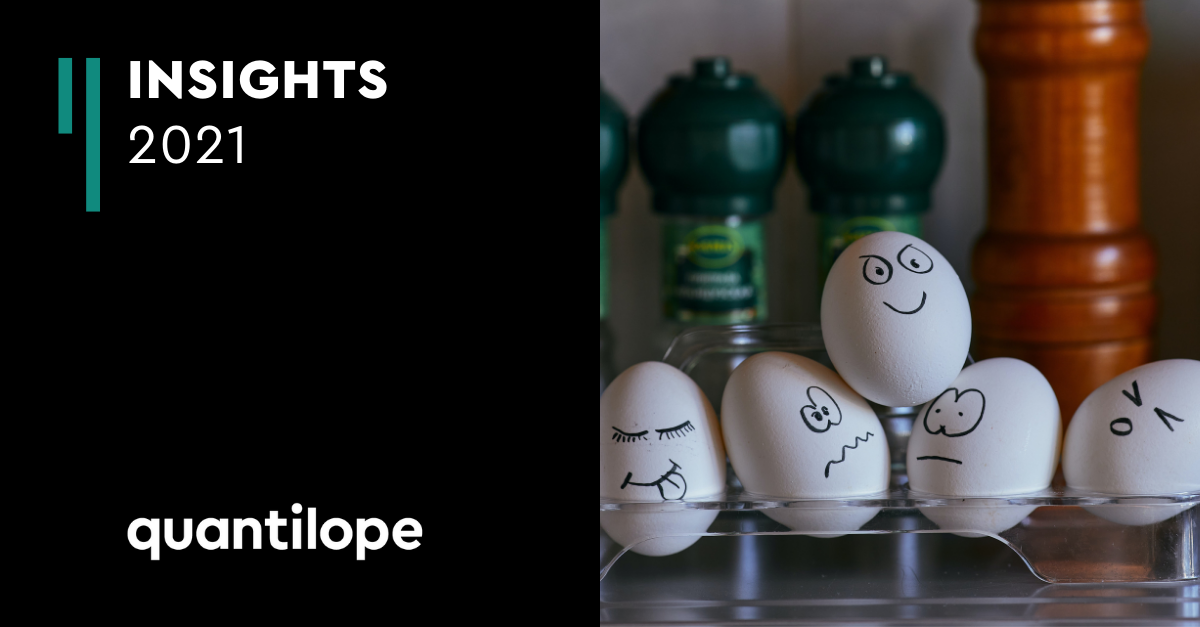“When she smiled, her eyes lit up like a pinball machine when you win a bonus game.” — Grant Naylor, Red Dwarf
Your genuine emotions can be very difficult to disguise. Even if you think you’re in control of your face, just the look in your eyes can give the game away.
We know that human facial expressions are universal. That’s to say, a businessman who finds an unexpected meeting in his office might register the same expression on his face as a little girl walking into a surprise party, no matter where in the world they are from. In fact, it’s also been shown that people who have been blind from birth make the same facial expressions as everyone else, even though they’ve never seen these expressions in use.
This commonality is the reason why facial analysis is a subject of such intense interest at the moment for people in various fields, but especially market research. At Plotto, we’re actually slightly obsessed with what’s known as Micro Expressions. If you’re new to the term, these are defined as brief, involuntary facial expressions that can betray a person’s true emotions. They usually last for only a tiny fraction of a second, as opposed to Macro Expressions which last slightly longer, and, as such, they are very difficult to convincingly fake. Interestingly, they often tend to be on display precisely when a person is trying to conceal their actual emotion, whether consciously or unconsciously.
There are seven 7 micro-expressions which have been commonly identified:
- Happiness
- Sadness
- Disgust
- Contempt
- Anger
- Fear
- Surprise
There is also a Neutral state where no facial movements are taking place. This is particularly useful as a comparison when coding or analysing emotional expressions.
Although some popular TV shows would have it that analysis of expressions can demonstrate whether or not someone is lying, this is not the case. But what they can do is provide a valuable insight into a person’s emotional state, and show that there may be something going on beneath the surface worth investigating further.
There are naturally many uses to which the analysis of micro-expressions can be put, from navigating social situations to finding the right candidate for a job. In the field of market research, they have value in determining what a person really believes about a product or service, rather than what they might be just saying out of politeness or in hope of a reward.
Conventional market research can often be stymied if it is unable to detect the true emotions of a respondent. This is especially an issue when it doesn’t take place face-to-face. Video research is, therefore, becoming very popular, as we can see how a person’s face moves while they are giving their responses. It’s true that this doesn’t tell us why a person may be concealing their feelings, but it can indicate that it’s worth digging deeper into the subject under discussion, whether it be a new type of shampoo or a proposed housing development.
Having the ability to trigger an emotional response in people is vital to advertisers. It can help to develop brand loyalty, boost the chances of conversion and foster a greater level of engagement in a conversation. Analysing micro expressions can help advertisers to determine if the connection they’re seeking is truly and effectively being made.
The facial emotion analytics that inColor uses in its online survey software can automatically read micro expressions in real-time. We analyse each video testimonial received every three seconds, thereby providing a concise and easy-to-understand summary of the range of emotions displayed throughout. For us, and our clients, who are interested in discovering.



